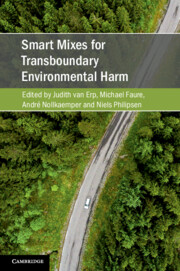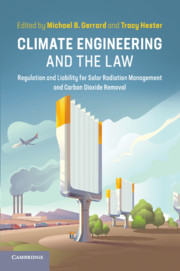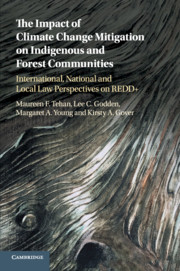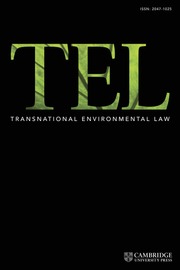Smart Mixes for Transboundary Environmental Harm
This work offers a multidisciplinary approach to legal and policy instruments used to prevent and remedy global environmental challenges. It provides a theoretical overview of a variety of instruments, making distinctions between levels of governance (treaties, domestic law), types of instruments (market-based instruments, regulation, and liability rules), and between government regulation and private or self-regulation. The book's central focus is an examination of the use of mixes between different types of regulatory and policy instruments and different levels of governance, notably in climate change, marine oil pollution, forestry, and fisheries. The authors examine how, in practice, mixes of instruments have often been developed. This book should be read by anyone interested in understanding how interactions between different instruments affect the protection of environmental resources.
- Proposes a new approach to environmental policy instruments
- Provides a theoretical framework related to smart instrument mixes as well as a concluding analysis based on the chapters
- Moves beyond case studies in specified domains to draw lessons about policy design
Product details
May 2022Paperback
9781108449526
365 pages
228 × 151 × 20 mm
0.53kg
11 b/w illus. 8 tables
Available
Table of Contents
- List of figures
- List of tables
- List of contributors
- Preface
- List of abbreviations
- Part I. Conceptual Approaches to Smart Mixes:
- 1. Introduction: the concept of smart mixes for transboundary environmental harm Judith van Erp, Michael Faure, André Nollkaemper, Niels Philipsen, Jing Liu and Markos Karavias
- 2. 'Smart' public-private complementarities in the transnational regulatory and enforcement space Linda Senden
- 3. Smart mixes and the challenge of complexity: lessons from global climate governance Philipp Pattberg and Oscar Widerberg
- 4. Smart (and not so smart) mixes of new environmental policy instruments Rüdiger Wurzel, Anthony Zito and Andrew Jordan
- Part II. Fisheries and Forestry:
- 5. The pursuit of good regulatory design principles in international fisheries law: what possibility of smarter international regulation? Richard Barnes
- 6. Mixing regional fisheries management and private certification Markos Karavias
- 7. RFMO-MSC smart regulatory mixes for transboundary tuna fisheries Agnes Yeeting and Simon R. Bush
- 8. Smart mixes in forest governance Jing Liu
- 9. Governing forest supply chains: ratcheting up or squeezing out? Constance McDermott
- 10. Public sector engagement with private governance programs: interactions and evolutionary effects in forest and fisheries certification Lars Gulbrandsen
- Part III. Climate Change and Oil:
- 11. Smart mixes, non-state governance and climate change Neil Gunningham
- 12. Private control of public regulation: a smart mix? The case of greenhouse gas emission reductions in the EU Marjan Peeters and Mathias Muller
- 13. Smart mixes with respect to civil liability regimes for marine oil pollution Michael Faure and Hui Wang
- 14. Regulatory mixes in governance arrangements in (offshore) oil production: are they smart? Jan van Tatenhove
- Part IV. Concluding Remarks:
- 15. Conclusion: smart mixes in relation to transboundary environmental harm Judith van Erp, Michael Faure, André Nollkaemper and Niels Philipsen.





